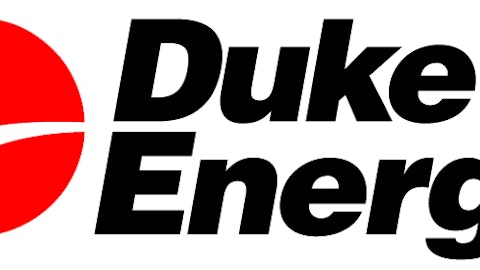The rising population has led to an increase in demand for utility supplies. The utilities business is monopolistic in nature and thus requires regulation. The government regulates the prices of utility supplies to maintain reasonable limits, as they serve basic human needs. The utilities keep trying to increase prices of their services by filing rate cases.
The state of economy is a key driver for utilities, and the improving economy acts as tailwind for the utility sector. In this article, I will analyze three utility companies trying to gain by either filing rate cases or divesting non-core assets to improve their outlook. Let’s see what opportunities these companies have for investors. Even if your bill is going up, at least your portfolio can too.
Kentucky utility case and fast track decision
In November 2012, PPL Corporation (NYSE:PPL) announced the settlement of Kentucky Utility’s rate case. The settlement went into effect from January 2013 with an increase in revenue of $99.7 million and 10.25% rate of return. Rate of return is calculated on the basis of rate base and is its capital investment and includes both tangible and intangible assets.
It is expected that its Kentucky rate base will rise to $9 billion in 2015 from $7.2 billion this year. With this rise, the company is expected to file new rates in 2014, which will be effective from 2015. This will generate additional revenue of $136 million in 2015.
PPL Corporation (NYSE:PPL)’s U.K. subsidiary, Western Power Distribution, or WPD, has filed a fast track application for rate filings of its utilities. The U.K. regulator will make a fast track draft determination by November and a final decision in March 2014. A fast track decision means that WPD’s plans are accepted without any changes. A fast track decision is granted on the basis of completeness of rate case filing and historic performance of utilities.
It’s expected that the company will receive this approval since its utilities have ranked best in reliability and customer services. This acceptance will provide incentives of 2.5% of its total expenditure. The company generates around 60% of its earnings from the U.K., therefore, this approval should become a key catalyst going forward.
Rate settlement and merger resulting in cost savings

The settlement with NCUC will raise the rates for customers by around 5%. The hearing of the case will begin in late July, with the final decision expected in September 2013. It is expected that if this settlement is approved, it will increase revenue by $205 million annually in the first two years.
Additionally, Duke Energy Corp (NYSE:DUK) is on track to realize synergies from its merger with Progress Energy. This merger made Duke the largest regulated utility company in the U.S., serving around 7.1 million customers. Through the merger, the company expects to deliver cost savings of $687 million in five years.
It is expected that reducing fuel cost will result in savings of $331 million, and its joint operation of the Carolinas generation fleet will bring savings of $356 million. By April, it generated savings of $97 million compared to the estimated $70 million. The company is using cheaper coal from the Illinois Basin and Appalachian to generate higher savings. It also entered into a supply contract, resulting in definitive savings of $238 million from fuel savings to be realized in the coming years.
Debt reorganization and assets sale
To reduce short-term debt and interest burden, FirstEnergy Corp. (NYSE:FE) issued $1.5 billion senior unsecured notes in first quarter ended March 2013. The notes were issued in two series of $650 million at 2.75% due in March 2018 and $850 million at 4.25% due in March 2023.
The proceeds from the debt issue will reduce the company’s short-term borrowing to $1.27 billion this year compared to $1.97 billion last year. With this debt restructuring, interest expenses will be reduced to $904 million this year compared to $929 million last year.
The company plans to sell 1,240 megawatts, or MW, capacity of its unregulated non-core hydro generation assets. The company will complete this sale in the second half of this year. It is expected that the sale of this asset will generate around $500 million. FirstEnergy Corp. (NYSE:FE) also plans to transfer 79% ownership interest in the 1,980 MW Harrison Plant to its regulated affiliate, Mon Power.
The company has determined the plant at fair market value of $1.3 billion. Considering the lackluster pricing scenario ahead, this transfer will be beneficial for the company. The company will utilize cash used from the proceeds to reduce its debt. The cash flow from this sale and transfer will further support annualized dividend of $2.20 per share with a dividend yield of around 5%.
Conclusion
Duke Energy Corp (NYSE:DUK) rate case settlement with North Carolina should increase revenue, and cost savings from the merger provides good growth prospects. I recommend a buy on this stock.
PPL Corporation (NYSE:PPL)’s rising rate base in Kentucky gives it a positive outlook and fast track determination for the U.K. regulated business will also provide benefits. I recommend a hold on this stock.
FirstEnergy Corp. (NYSE:FE)’s issuance of senior notes will reduce its short-term debt liability, and sale proceeds of hydro assets and the Harrison plant will support dividend yield. I suggest a hold on this stock.
Madhukar Dubey has no position in any stocks mentioned. The Motley Fool has no position in any of the stocks mentioned.
The article Energy Companies Energizing Revenue originally appeared on Fool.com and is written by Madhukar Dubey.
Madhukar is a member of The Motley Fool Blog Network — entries represent the personal opinion of the blogger and are not formally edited.
Copyright © 1995 – 2013 The Motley Fool, LLC. All rights reserved. The Motley Fool has a disclosure policy.


